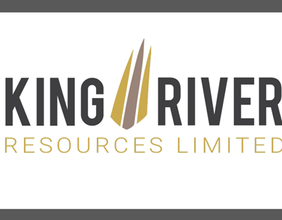In an era where the complexity of global supply chains continues to escalate, the need for integrated logistics solutions has become more apparent than ever. This evolution is driven by a variety of factors including increasing globalization, customer demand for faster and more reliable deliveries, and the ever-present push towards sustainability. These dynamics are reshaping the way companies approach logistics and supply chain management, heralding a new age of strategic partnerships and technological integration.
A comprehensive survey conducted by MindMiners and EXAME in partnership with DP World, a leader in global supply chain solutions, provides insight into the current and future trends of logistics management. The survey polled more than 200 executives from large organizations to discover that there is a clear shift towards working with end-to-end logistics providers who offer integrated services across all stages of the supply chain.
The Rise of End-to-End Logistics Solutions
The traditional model of logistics, characterized by fragmented services and multiple intermediaries, is rapidly giving way to a more consolidated approach. Today's businesses demand not just service providers but strategic partners who are deeply integrated into their operations and committed to addressing comprehensive logistics challenges. This shift is largely driven by the need for enhanced operational efficiency and better management of the increased complexities that come with global supply chains.
“Supply chains have become more complex in recent decades, involving different suppliers and logistics partners that connect in various parts of the world. Managing all this increases the costs of transporting goods. Therefore, the market clamors for integrated solutions,” said Fábio Siccherino, CEO of DP World Brazil, which operates one of the largest and most modern multipurpose private port terminals in the country at the Port of Santos. The response from the market has been a loud call for integrated solutions that streamline processes and cut through the complexity to deliver cost-effective, reliable outcomes.
Supplier Relationship is Key
Supplier relationships remain a challenge for those across the industry. When dealing with multiple suppliers, 42% of survey respondents pinpointed high costs as a major issue, followed by reporting communication failures with suppliers (36%). To address these issues, 55% of respondents are adopting strategies like supplier consolidation, while 50% are accelerating digitization and automation.
Siccherino emphasizes that poor communication, lack of transparency, or unreliability from suppliers can result in delivery delays, inconsistent product quality, and disruptions in the supply chain. Effective management of supplier processes is crucial for reducing costs and enhancing operational efficiency, as demanded by the market.
Strategic Advantages of Integrated Solutions
There are several advantages when adopting an integrated logistics approach. First, it significantly reduces the risk of communication failures and supply chain disruptions, which are common in more segmented operations. Secondly, it improves overall operational efficiency by minimizing the redundancies and delays that can occur when multiple parties are involved.
The survey reveals that companies are increasingly recognizing these benefits – 69% of respondents highlighted the economic benefits derived from employing end-to-end logistics services, 58% pointed to optimization and risk reduction, and 54% identified reputation improvement and shortened delivery deadlines as the top benefits of working with an end-to-end logistics provider.
Sustainability and Corporate Responsibility
Another critical aspect driving the shift towards integrated logistics solutions is the increasing emphasis on sustainability and corporate social responsibility (CSR). The logistics sector, traditionally known for its significant environmental footprint, is under growing pressure to adopt greener practices and help combat climate change. This is not just a regulatory demand but a business imperative, as customers and stakeholders increasingly favor companies with strong environmental credentials.
Nearly three-quarters of respondents (74%) say that their companies are increasingly prioritizing sustainable practices. This includes opting for sustainable energy (50%), using sustainable logistics resources (42%), and opting for suppliers with sustainable practices (40%).
The biggest impacts anticipated for these actions are cost reduction (64%), access to extensive end-to-end logistical resources (60%), and increased perceptions of value by business partners (60%).
DP World’s initiatives, such as investing in electrified equipment and adopting renewable energy sources across its operations, exemplify the industry's response to these challenges. These efforts are aimed not only at reducing the carbon footprint but also at positioning the company as a leader in sustainable logistics solutions.
Preparing for the Future
Looking forward, the logistics industry faces several challenges and opportunities. The ongoing digital transformation, the push for further sustainability, and the evolving global trade dynamics will continue to shape the industry’s trajectory.
Companies like DP World are already paving the way with strategic investments in technology and infrastructure to meet these future demands. Our approach not only responds to current market needs but also anticipates future trends, making us a leader in comprehensive logistics in a rapidly changing world .
In conclusion, as global supply chains become increasingly complex and the demands for efficiency and sustainability grow louder, the role of integrated logistics solutions becomes more crucial. Companies that embrace this integrated approach, backed by strong technological support and a commitment to sustainability, are well-placed to lead the market in the coming years.
The insights from the MindMiners and EXAME survey underscore this trend, highlighting the strategic shifts companies must make to navigate the future of logistics and supply chain management effectively.
###





_02_05_2025_05_53_40_418159.jpg)
